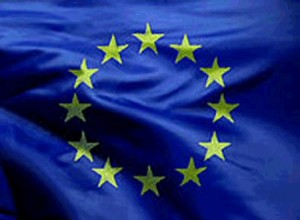 The battle at the Democratic convention to exclude God from the party’s platform is no minor moment. Do not underestimate what transpired there.
The battle at the Democratic convention to exclude God from the party’s platform is no minor moment. Do not underestimate what transpired there.
And while it speaks to so many things, at many levels, it reminds me of the recent battle within the European Union to exclude God from the EU constitution. That comparison is no mere academic one. It speaks volumes about the ongoing direction of the Democratic Party, and this nation.
About 10 years ago, the EU was in an intense debate over whether to mention God in its new constitution. The God opponents were the predictable Western European progressives: leftist Eurocrats in Brussels, Labor Party atheists in Britain, German socialists, Scandinavian secularists, and, naturally, the French leadership. The God supporters included new EU member states that survived godless communism—with Poland in the forefront—and the continent’s preeminent religious figure: Pope John Paul II.
The pope, suffering from advanced Parkinson’s, took up the fight with vigor. In the summer of 2003, he devoted a series of Sunday Angelus addresses to this political issue that transcended politics. He made arguments akin to those made by the American Founding Fathers: It is crucial for citizens living under a constitution to understand the ultimate source from which their rights derive. Their rights come not from government but from God. What government gives, government can take away. What God gives, government cannot take away.
The pope was countered by the likes of French president Jacques Chirac, who sniffed: “France is a lay state, and as such she does not have a habit of calling for insertions of a religious nature into constitutional texts.” The “lay character” of France’s government and public institutions, according to Chirac, simply did “not allow” for a reference to God in a constitution.
Chirac displayed precisely the misunderstanding of church and state that secular liberals in the United States have heartily embraced.
In the end, the EU compromised on a bland statement grudgingly conceding the continent’s “cultural, religious, and humanist inheritance.” It was a nod to God that George Weigel, in his superb “The Cube and the Cathedral,” described as “so bland as to be meaningless.”
But, in an important way, it was actually not meaningless. Hilaire Belloc once said that “the (Christian) faith is Europe and Europe is the faith.” Well, it isn’t anymore. Perhaps, then, it was perfectly fitting that the Europeans excluded God from their platform.
That brings me back across the Atlantic, to Charlotte. That the Democrats, in 2012, would find themselves in a similar battle is no surprise.
I’ll never forget the night Barack Obama won the 2008 election, when I turned on CNN and glimpsed an unknown Republican congressman from Wisconsin named Paul Ryan. When asked about Obama’s victory, Ryan said he was most concerned about “the Europeanization of America.”
“That’s it!” I said to myself. “That’s exactly it. Who is this guy? He nailed it.”
A further “Europeanization” of America is the best description of what has transpired under the Obama administration, especially its first two years under a fully supportive Democratic Congress. In 2009-10, we witnessed incredibly wasteful Keynesian-style prime-the-pump “stimulus,” partial nationalizations, “Obama-care,” explosive public-sector growth and unionization, demonization of the banking and investment and oil industries, stagnant unemployment, class-warfare rhetoric unlike anything I’ve ever heard in this country, and debt-to-GDP ratios approaching Greece standards. We’ve experienced a record-long non-recovering recovery reminiscent not of the American experience but of Western Europe.
As someone who researches communism, I’m often asked if the Obama administration is pursuing socialistic or even communist policies. No, no, I’ve always said. If you want the closest model to what Obama is doing, look at the Attlee government in Britain after WWII or Western Europe today generally.
I recently did an interview with the BBC in Ireland. The host asked: “What’s wrong with you Americans? You call Obama a ‘socialist’ as if socialism is bad. Here in Europe, we think he’s doing exactly the right thing.” Likewise, a friend of mine recently returned from Spain. She was shocked by the overwhelming support for Barack Obama’s policies. It’s really no shock at all—not in Spain.
Here in America, the staunchest liberal-Democrat areas, such as California, Massachusetts, and New England, all have European-level birthrates, divorce rates, abortion rates, and even church attendance. New England, in many ways, is a microcosm of Western Europe.
By the time of the 2012 Democratic convention, party delegates had already (following Barack Obama’s lead) embraced everything from unlimited taxpayer-funding of abortion to gay marriage. How does one get to these positions? Answer: by removing God. Fittingly, then, the delegates merely need to take the next evolutionary step: exclude God. It was very … European.
The soul of the Democratic Party continues to change dramatically.



